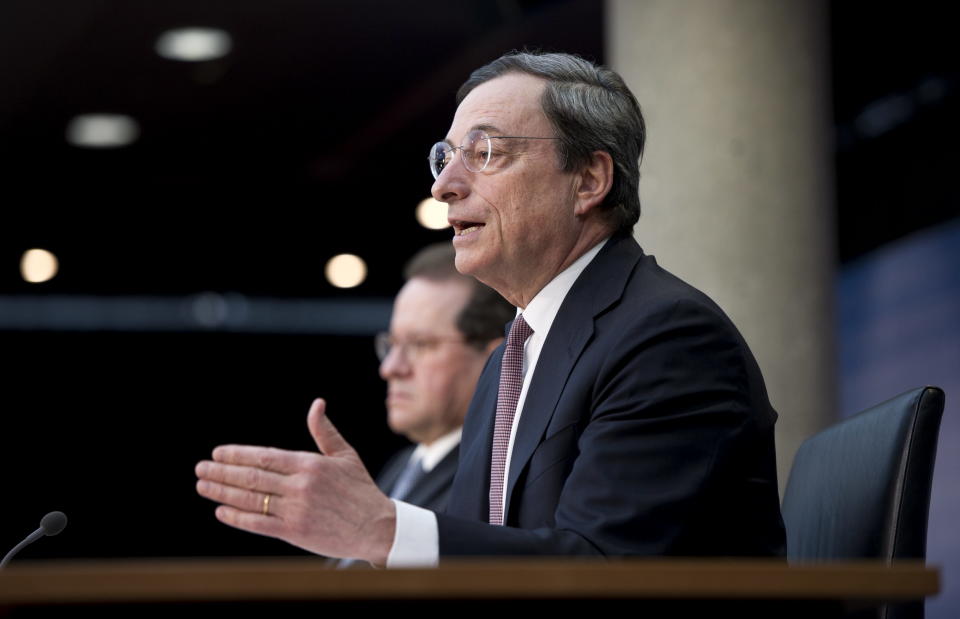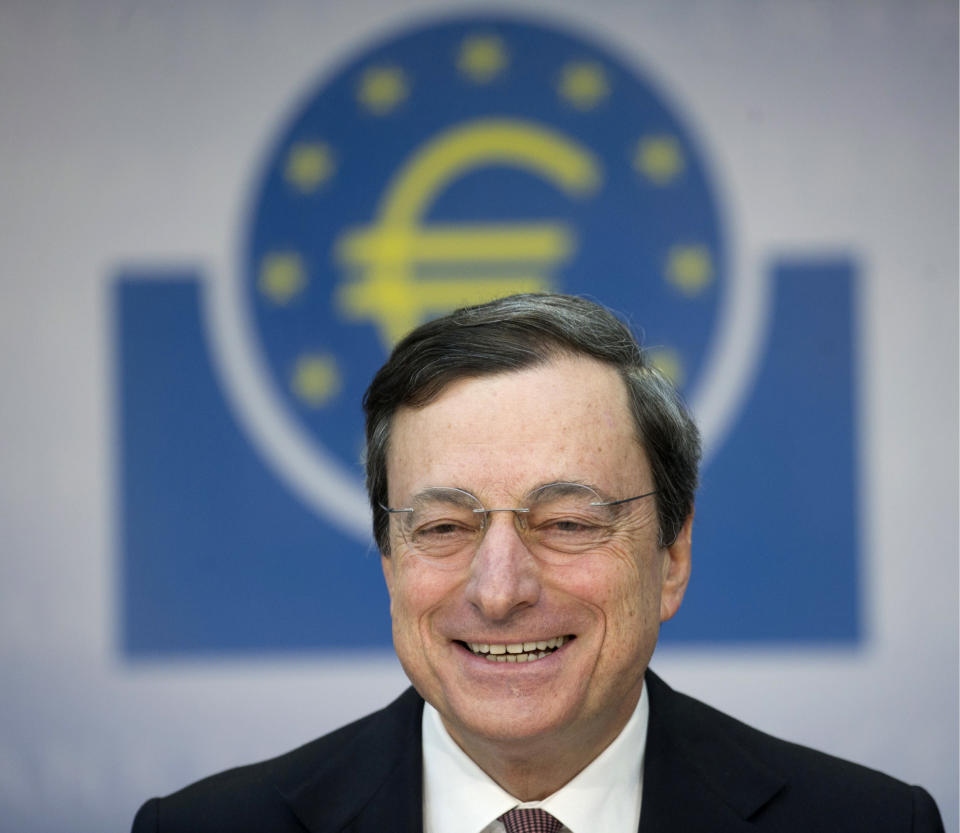ECB's Draghi: Premature to talk of loan exit
FRANKFURT, Germany (AP) — European Central Bank President Mario Draghi said Wednesday that with unemployment rising and economies shrinking across the continent it is far too soon to discuss winding down its massive support for Europe's financial system.
The bank is still sizing up the "powerful and complex" effects of the €1 trillion ($1.3 trillion) in cheap, three-year loans it made to banks on Dec. 21 and Feb. 29, Draghi said. "Any exit strategy talk is premature," he said.
Draghi spoke after the ECB left its key interest rate unchanged at 1 percent.
The ECB loans helped boost confidence in the eurozone's commercial banks, which had become fearful of lending to each other. And shortly after the loans were made, government borrowing costs began to fall — a sign that the banks were using money borrowed on the cheap to invest in government debt that paid a higher interest rate. Recently, however, the borrowing costs of some heavily indebted countries — most notably Spain and Italy — have crept higher.
Draghi said market pressure was a sign that investors would like to see faster reforms from heavily indebted countries, including deficit-cutting and clearing away barriers to competition.
"The markets are asking these governments to deliver, basically," Draghi said. "It's fiscal consolidation, it's structural reforms. I don't want to specifically address Spain only."
The bank is regarded as in a holding pattern since cutting rates in November and December 2011 and making the loans available to hundreds of banks. But top ECB officials have said they don't expect the money to immediately lead banks to boost lending to businesses and consumers.
Jens Weidmann, the head of Germany's Bundesbank, has stressed that these loans carry risks, namely that they might push up inflation, and that the ECB needs to discuss how to exit the emergency support measure. Weidmann, who joined the unanimous ECB council in supporting the so-called longer-term refinancing operations — or LTROs — has also remarked that they could prop up unsustainable banking practices and weaken governments' resolve to enact reforms.
On the economy, Draghi said the ECB expects a gradual recovery this year in the eurozone, but that there are still risks for a turn for the worse.
The eurozone economy shrank at an annualized rate of 0.3 percent in the fourth quarter and future growth indicators remain weak, raising the likelihood that the economy shrank again in the just-finished first quarter. Two quarters of falling output are a technical definition of recession.
Unemployment is at a record 10.8 percent for the 17 countries that use the euro, while youth unemployment has reached 50 percent in Spain and Greece.
The bank is regarded as unlikely to cut rates unless there's a significant turn for the worse. In part, that's because annual inflation of 2.6 percent remains stubbornly above its goal of just under 2 percent. The bank blames higher oil prices, not inflationary pressures from the economy.
Government officials in indebted countries are concerned that slashing budgets and raising taxes to reduce debt and satisfy bond investors may hurt growth in the coming months as well. That would make it harder for indebted countries to dig out of the debt woes that have pushed Greece, Ireland and Portugal to take international bailout loans and raised concerns about Italy and Spain's ability to borrow affordably to maintain their own debt burdens.
Spain had a disappointing bond auction Wednesday, selling only €2.6 billion, at the very low end of the target range of €2.5-€3.5 billion.



